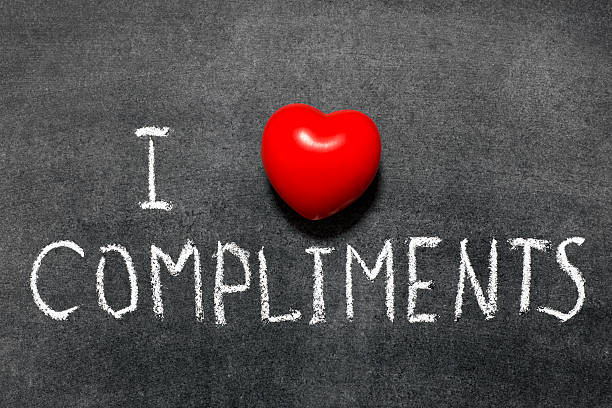Introduction: The Power of Speech and Honor in Historical Narratives
Throughout history, speech has been a powerful tool for conveying honor. Whether in battle, political speeches, or in times of social change, the act of speaking has served to define and elevate the concept of honor. Historical narratives, which capture pivotal moments in time, often showcase how honor was defended, celebrated, or even challenged through public speeches. From ancient times to modern-day political movements, speeches have shaped the way we view honor. In this article, we’ll explore how speech and honor intersect within historical narratives and why they continue to influence today’s storytelling.
The Concept of Honor in Historical Contexts
The idea of honor has evolved significantly throughout history. In ancient societies like Greece and Rome, honor was often tied to personal reputation and societal status. In these cultures, honor was not just a private matter; it was a public declaration of one’s integrity, courage, and loyalty. Moving to the medieval era, the concept of honor became deeply intertwined with the chivalric code—a set of rules governing knights’ conduct, including bravery in battle and loyalty to one’s lord. Today, honor continues to influence societal norms, though it may manifest in new ways through political speech, social justice movements, and individual identity.
The Role of Speech in Conveying Honor
Speech has always been a vital medium for conveying honor throughout history. From ancient orations to modern political debates, the spoken word has the power to elevate the concept of honor in ways that written text alone cannot. In ancient Greece, for example, orators like Demosthenes used speeches to honor fallen soldiers, reinforcing civic pride and honor in their community. Similarly, Winston Churchill’s stirring speeches during World War II rallied the British people, symbolizing honor and resilience in the face of adversity. Speech, whether in battle or diplomacy, has allowed individuals to project their values of honor, making it an enduring tool in shaping historical narratives.
The Rhetorical Power of Speeches in Shaping Honor
Speeches are not just about what is said, but how it’s said. The rhetorical power of speech has long been used to shape and elevate the concept of honor. Skilled orators use various techniques—ethos, pathos, and logos—to connect with their audience and frame honor in ways that resonate deeply. Ethos builds credibility, making the speaker a trusted figure who speaks with integrity. Pathos appeals to emotions, often invoking pride, loyalty, or courage to inspire honor within the audience. Finally, logos presents logical arguments that tie honor to collective action and societal good. The combination of these rhetorical elements has made speeches a powerful tool in defining honor across historical narratives, from ancient oratory to modern-day political discourse.
Influential Figures and Speeches that Defined Honor
Throughout history, certain figures and their speeches have stood as pillars of honor. These speeches didn’t just reflect honor; they defined it. For instance, Winston Churchill’s speeches during World War II, such as his famous “We shall fight on the beaches” address, epitomized national honor and resilience in the face of adversity. Similarly, Nelson Mandela’s speech upon being released from prison, where he spoke of forgiveness and peace, encapsulated the true meaning of honor in the context of reconciliation and justice. Figures like Abraham Lincoln and Martin Luther King Jr. also used the power of speech to defend and elevate the ideals of honor, shaping the direction of nations and the hearts of their people. These speeches continue to resonate, showing how honor is woven into the fabric of political and cultural narratives.
Honor in the Age of Political Narratives
In the modern world, honor continues to play a crucial role in political narratives. Political leaders often use speeches to appeal to a sense of honor—both personal and collective. For example, in the civil rights era, leaders like Martin Luther King Jr. used speeches to emphasize the moral honor of fighting for equality and justice. In recent times, politicians use speech to frame themselves as protectors of national honor, often linking patriotism and identity to political actions. During moments of crisis, such as wars or social unrest, honor becomes a rallying point for both leaders and citizens. The power of political speech in shaping national honor demonstrates its ongoing relevance in shaping contemporary historical narratives.
Speech and Honor in Literature and Art
Honor has been a central theme in literature and art, often expressed through powerful speeches and dialogue. In classic literary works, such as Shakespeare’s plays, characters frequently engage in speeches that highlight their sense of honor. For instance, in “Henry V,” King Henry’s St. Crispin’s Day Speech serves as a rallying cry for his soldiers, invoking honor and loyalty to their cause. Similarly, in Homer’s Iliad, the characters’ motivations and actions are often rooted in their understanding of honor—whether in battle or in diplomacy. Honor in art has also been depicted through visual representations, where artists convey the emotional depth of the concept. Whether in literature or art, honor and speech remain intertwined, portraying the essence of human dignity and integrity.
Modern Interpretations of Honor in Speech and Storytelling
In today’s world, honor continues to be a key theme in speech and storytelling, though its interpretation has evolved. With the rise of social media and digital platforms, the way honor is expressed has shifted. Public figures, influencers, and activists now use speech to advocate for social justice, equality, and personal integrity. For example, speeches around movements like #MeToo and Black Lives Matter highlight how honor is linked to the protection of dignity and rights. In contemporary storytelling, honor is no longer just about war or politics; it’s also about personal and collective identity. Whether in film, literature, or digital content, honor is redefined in a way that speaks to modern audiences, ensuring its continued relevance in shaping societal narratives.
Conclusion: The Enduring Power of Speech and Honor in Historical Narratives
In conclusion, the intersection of speech and honor remains a timeless theme in historical narratives. From ancient orations to modern-day speeches, honor continues to be conveyed and celebrated through powerful words. Whether in the context of political movements, literary works, or cultural shifts, speeches have played a central role in defining honor and shaping societal values. The legacy of these speeches and the enduring relevance of honor ensure that both concepts will continue to influence narratives for generations to come. As we reflect on historical events and modern stories, it’s clear that the power of speech to convey honor remains as important today as it was in the past.






